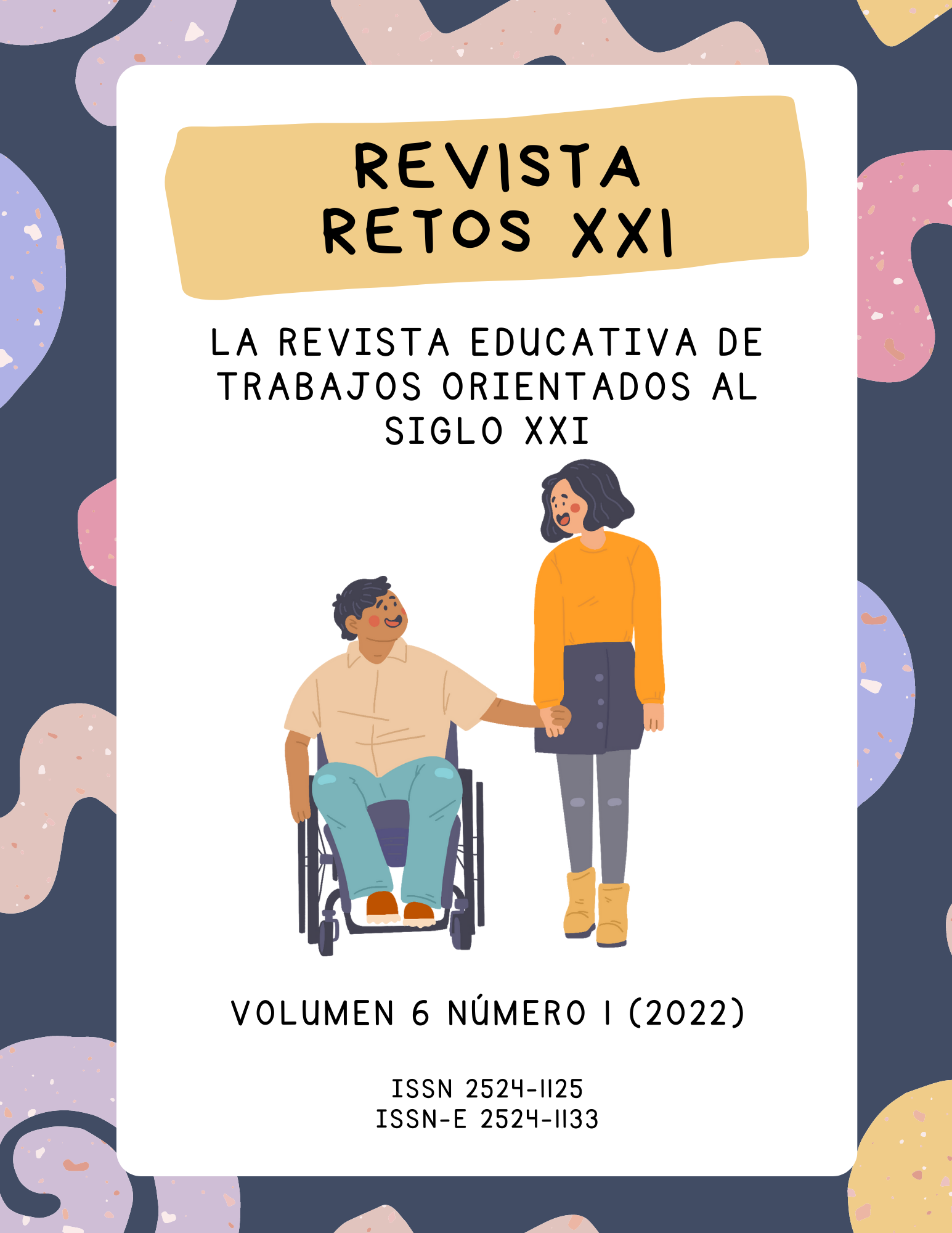INFORMATION AND COMMUNICATION TECHNOLOGIES (ICTS) AS TOOLS FOR REFLECTION AND TEACHER TRAINING ON THE CONSTRUCTION OF INTERCULTURALITY IN THE CLASSROOM
DOI:
https://doi.org/10.30827/retosxxi.v6i1.25355Keywords:
Classroom, Training, Teacher, tools, Information and Communication Technologies.Abstract
This research is based on the observation of a situation in the educational context, therefore, through the design of action research participant, the general objective is to propose the Information and Communication Technologies (ICT) as tools for reflection and teacher training around the construction of interculturality in the classroom of the Minuto de Dios School in Soacha-Cundinamarca. In this way the qualitative method of research with a descriptive scope is chosen, using the information gathering technique of the survey. As results of the basic research we can say that intercultural education in the teachers participating in the research mostly do not have a training process by the educational institution on Information and Communication Technologies, therefore, not knowing these resources they are disoriented in the implementation of interculturality in the pedagogical process, in addition they do not understand in its totality the concepts inherent to intercultural education. Consequently, it is proposed to carry out an applied research to help their training on intercultural education and to have as support in their pedagogical process a digital tool such as the web page, this will allow them to complement their competences in the handling of Information and Communication Technologies and the attention to the student population in relation to the parameters of interculturality.
Downloads
References
Baronnet, B, Mercon, J. & Alatorre, G. (2018). Educación para la interculturalidad y la sustentabilidad: aportaciones reflexivas a la acción. Elaleph.
Blanco, C. (2011). Encuestas y estadísticas: métodos de investigación cuantitativa en ciencias sociales y comunicación. Brujas.
Dávila, D. Galvis, A. & Vivas, R. (2015). Sitio Web como estrategia de enseñanza en la educación para la Sostenibilidad. Revista Praxis y Saber, 6(11), 115-138. http://www.scielo.org.co/pdf/pra
sa/v6n11/v6n11a06.pdf
Escarbajal, A. (2010). Comunidades interculturales y democráticas. Un trabajo colaborativo para
una sociedad inclusiva. Narcea.
González, J. (2009). TIC y Educación. Editorial Publicaciones de Aula de Letras. Editorial Publicaciones de la U.
Hernández, R. (2017). Impacto de las TIC en la educación. Revista Retos y Perspectivas. Propósitos y Representaciones, 5(1), 325 -347. http://dx.doi.org/10.20511/pyr2017.v5n1.149
Hernández, R., Fernández, C., & Baptista, P. (2014). Metodología de la investigación (Sexta Edición). McGraw-Hill.
Leiva, J. (2011). La educación intercultural: un compromiso educativo para construir una escuela sin exclusiones. Revista Iberoamericana de Educación, 56(1), 16-24. https://rieoei.org/RIE/article/vie
w/1555
Momimo, J. & Sigales, C. (2016). El impacto de las TIC en la educación Más allá de las promesas. UOC.
Niño, V. (2011). Metodología de la investigación. Ediciones de la U.
Organización de las Naciones Unidas para la Educación, la Ciencia y la Cultura. (2014). Enseñanza y
Aprendizaje: lograr la calidad para todos. Informe de seguimiento de la EPT en el mundo 2013-2014. UNESCO. http://unesdoc.unes co.org/images/0022/002256/225654s.pdf
Organización de las Naciones Unidas para la Educación, la Ciencia y la Cultura (UNESCO). (2021).
Acoso y violencia escolar. https://es.unesco.org/themes/acoso-violencia-escolar
Organización para la Cooperación y el Desarrollo Económicos (2018). El trabajo de la OCDE sobre
Educación y Competencias. Editorial OCDE.
Organización para la Cooperación y el Desarrollo Económicos (2019). El trabajo de la OCDE sobre
educación y competencias. OCDE. https://www.oecd.org/education/El-trabajo-de-la-ocde-sobreeducacion-y-competencias.pdf
Ortiz, D. (2015). La educación intercultural: el desafío de la unidad en la diversidad. Revista Sophia, 18(15),91-110. http://www.redalyc.org/articulo.oa?id=441846095006
Peiró, S. & Merma, G. (2012). La interculturalidad en la educación. situación y fundamentos de la educación intercultural basada en valores. Revista Castellano-Manchega de Ciencias Sociales,
(13),127-139. https://www.redalyc.org/articulo.oa?id=322127623008
Prieto, V., Quiñones, L., Ramírez, G., Fuentes, Z., Labrada, T., Pérez, O., & Montero, M. (2011).
Impacto de las tecnologías de la información y las comunicaciones en la educación y nuevos
paradigmas del enfoque educativo. Revista de Educación Médica Superior, 25(1), 95-102. http://scielo.sld.cu/scielo.php?script=sci_arttext&pid=S0864-21412011000100009&lng=es&tlng=es.
Sáenz, R. (2006). La educación intercultural. Revista de Educación, 339 (6), 859-881. https://redined.educacion.gob.es/xmlui/handle/11162/69100
Schunk, D. (2012). Teorías del aprendizaje. Una perspectiva educativa. Editorial Pearson.
Published
Versions
- 2023-04-20 (2)
- 2022-10-28 (1)
How to Cite
Issue
Section
License
Copyright (c) 2022 The Educational Journal of Works Aimed at the XXI century (XXI CHALLENGES)

This work is licensed under a Creative Commons Attribution-NonCommercial-ShareAlike 4.0 International License.












